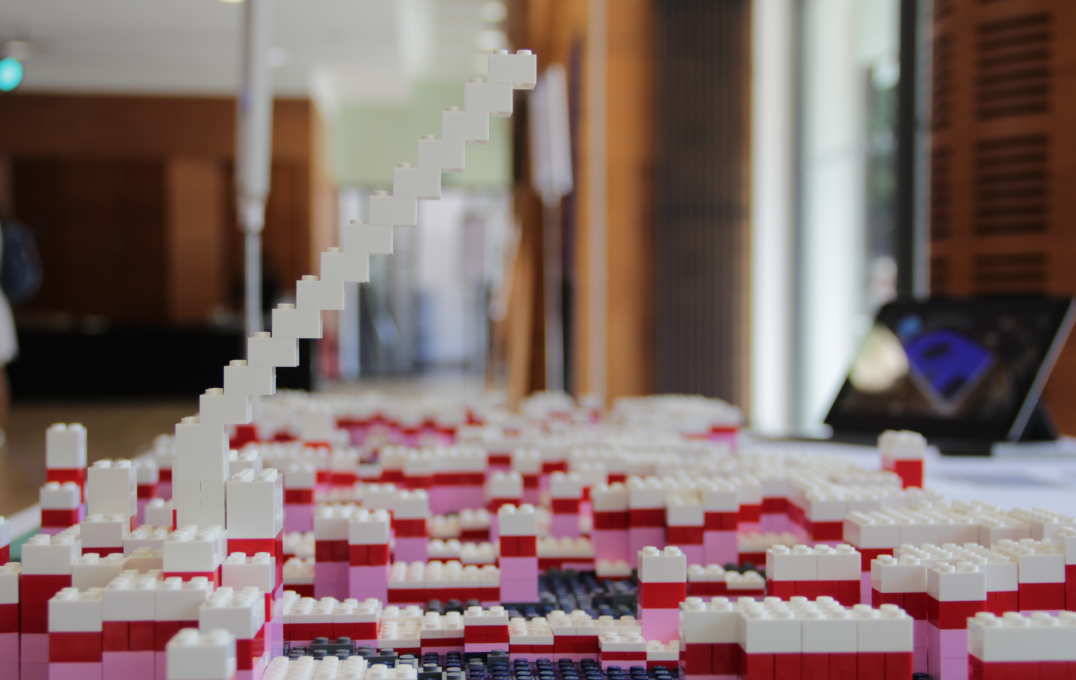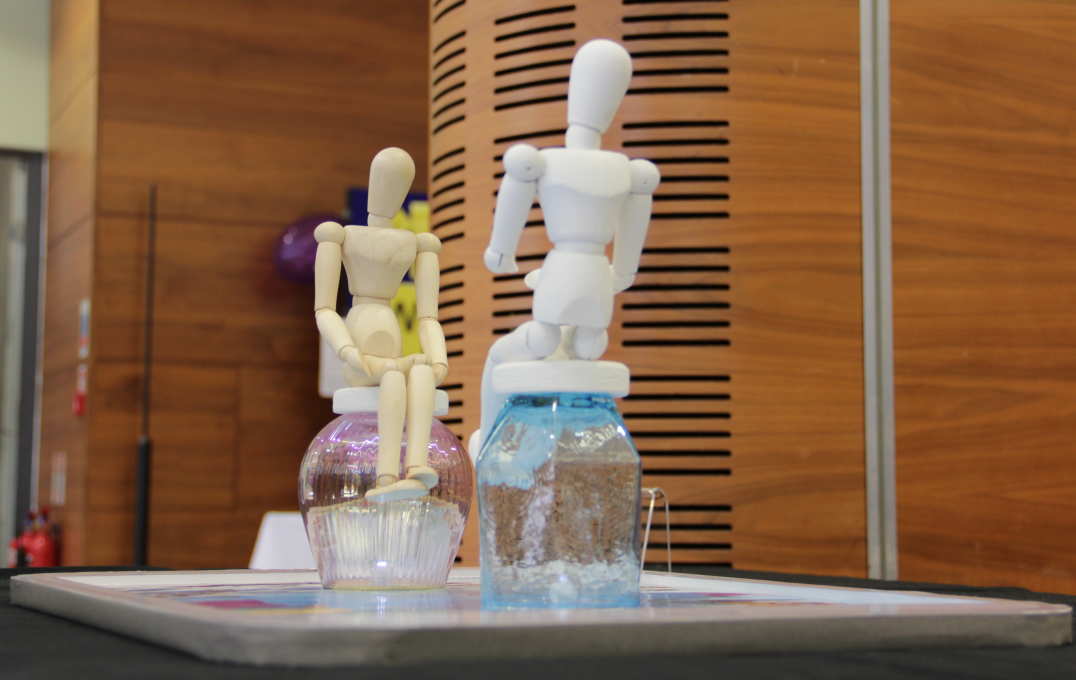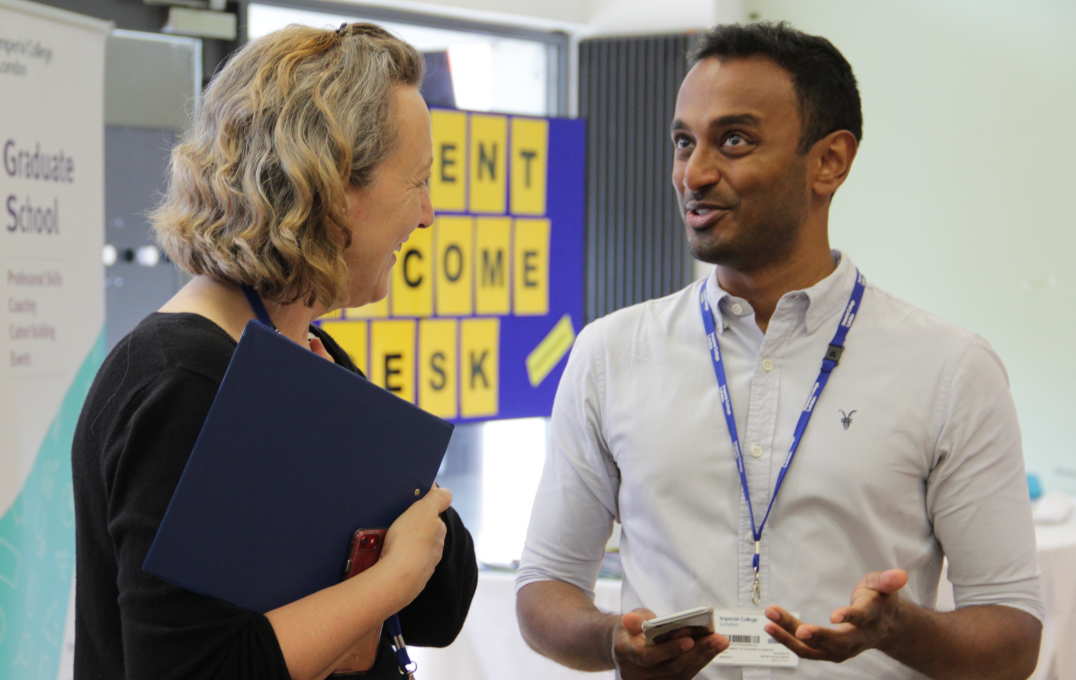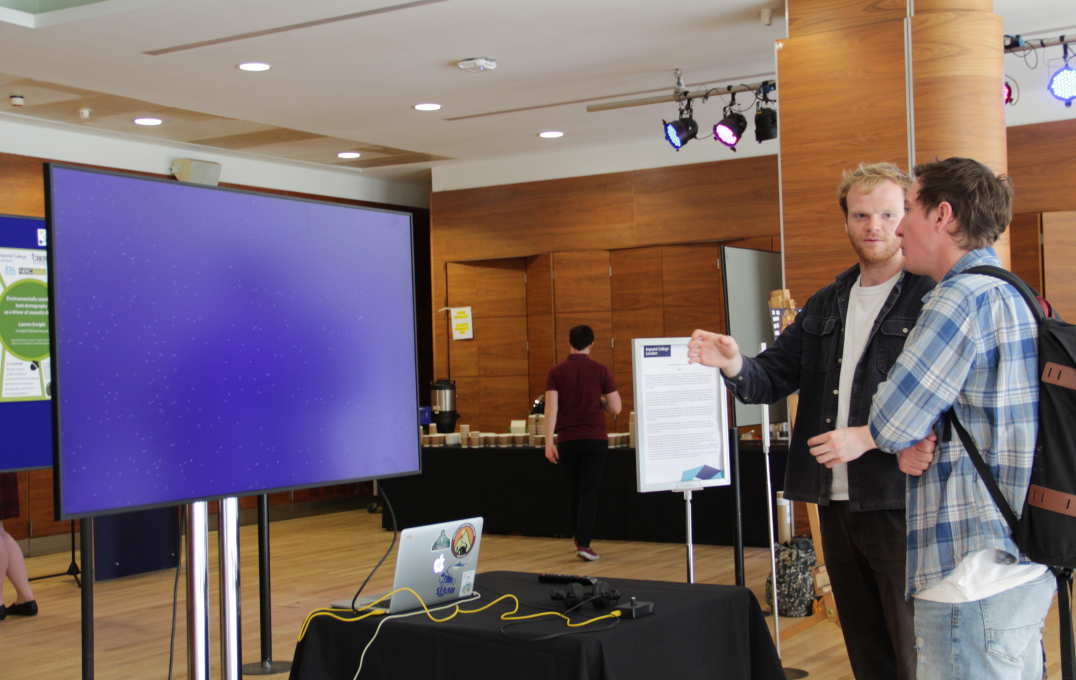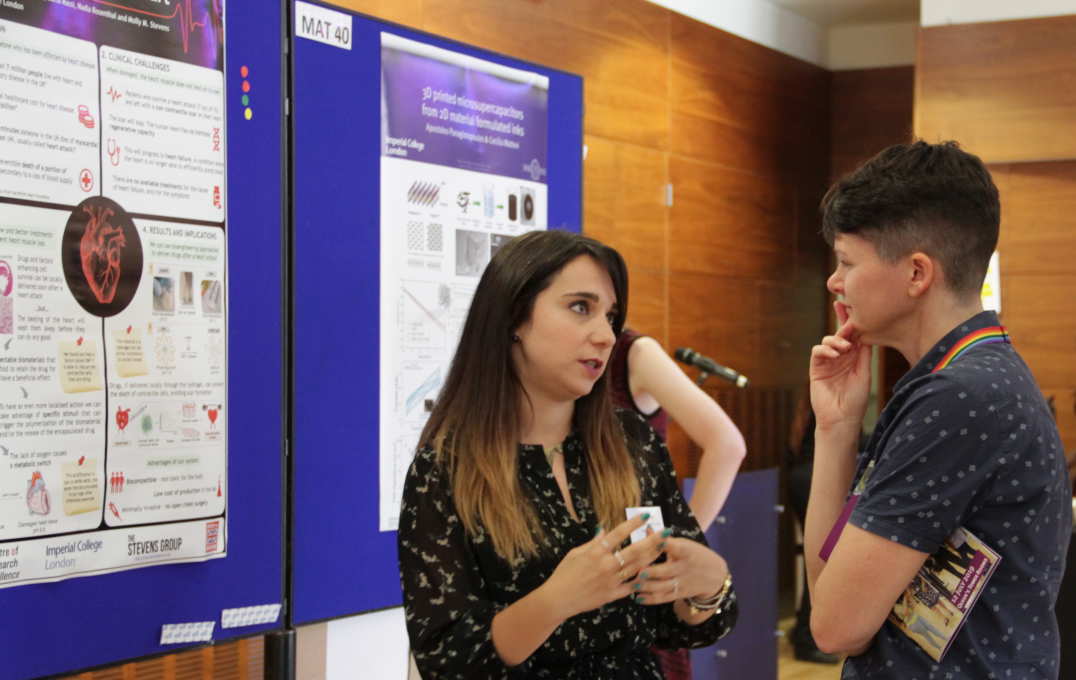PhD students put creativity on show at annual summer showcase
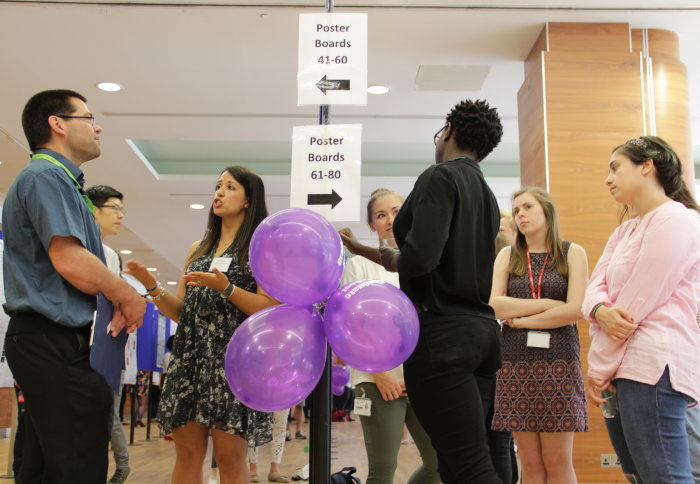
Imperial’s PhD students used their creative talents and displayed innovative research at the summer showcase.
Hosted by the Graduate School, 90 students submitted a range of their most imaginative work in two separate categories – a poster and Research as Art competition.
Entries were judged by a selection of Imperial staff and postgraduate students, who marked each poster on visual impact, design and content and their ability to engage the public with their research through a two-minute elevator pitch. In the Research as Art category, judges looked for how well the exhibits communicated their research, the effectiveness of media, and visual impact.
Laura Lane, Head of Strategy and Operations at the Graduate School, presented winners from both categories with their prizes and certificate. She said: “The Graduate School’s PhD summer showcase is a fantastic opportunity for the College community to learn about the amazing research projects being undertaken by research students.
“I was really impressed with the quality and content of the posters being presented this year. In terms of the art competition, our students were really creative and I’m glad that so many were able to enter.”
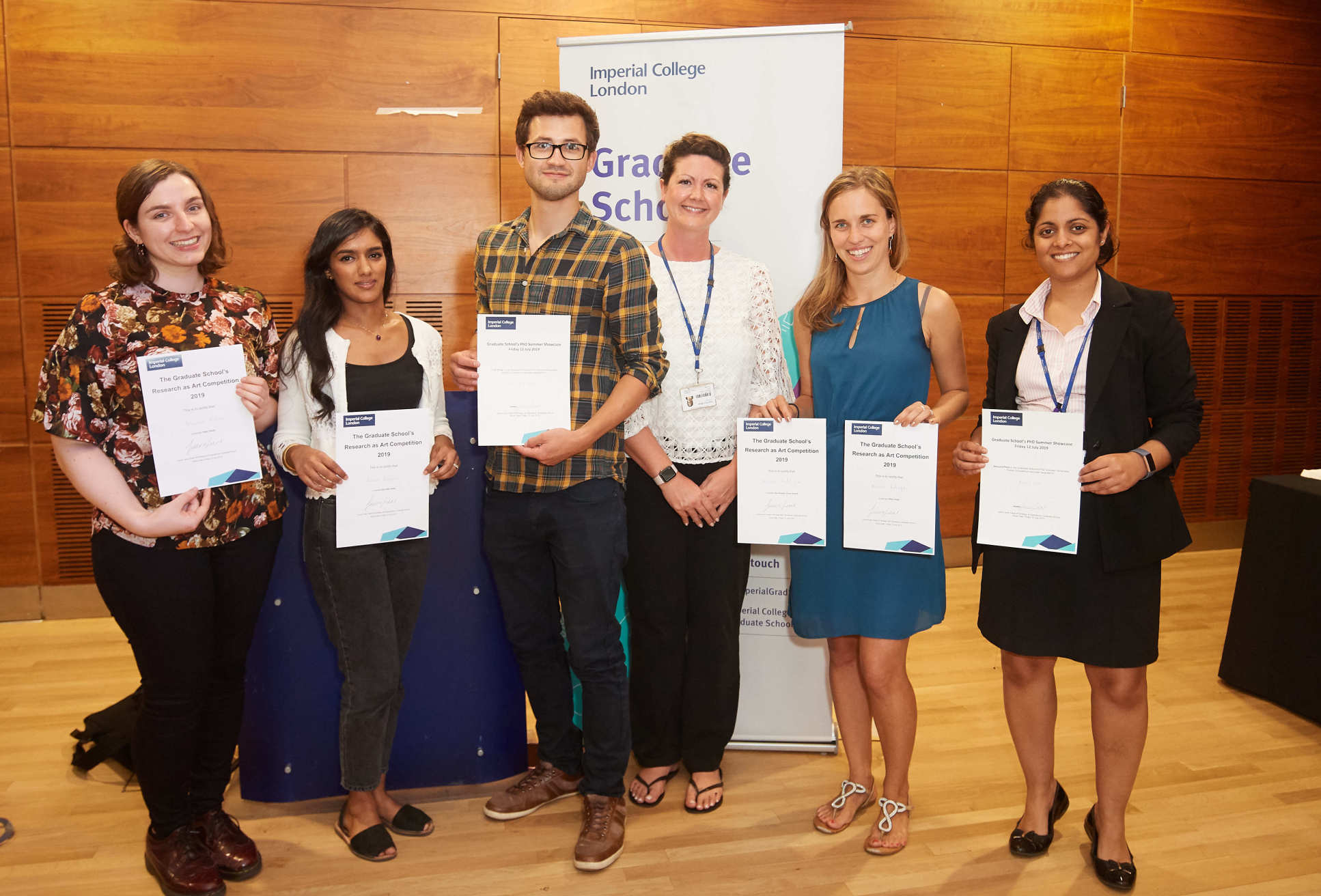
The winners of first prize for both competitions spoke to Martha Nahar about their PhD projects, and reflected on their win.
Research as Art
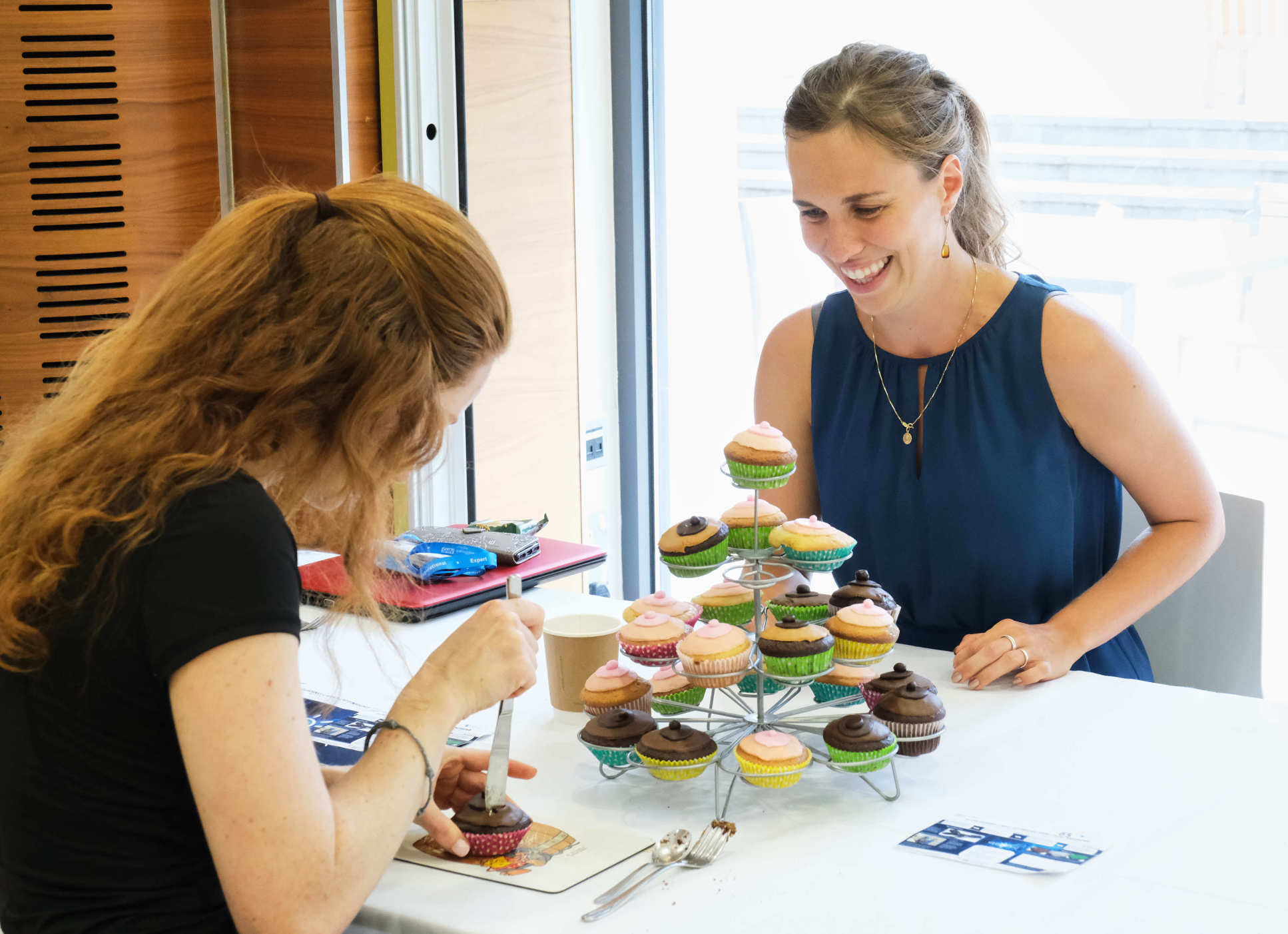 Dr Martha Kedrzycki, Clinical Research Fellow at the Department of Surgery and Cancer, scooped first prize in the Research as Art competition with her interactive exhibit titled ‘Glow.’
Dr Martha Kedrzycki, Clinical Research Fellow at the Department of Surgery and Cancer, scooped first prize in the Research as Art competition with her interactive exhibit titled ‘Glow.’
“I feel honoured to have won first prize. I really enjoyed the opportunity to explain my research in a way that is easily understood and accessible." Martha Kedrzycki Clinical Research Fellow
Martha’s PhD project focuses on lumpectomy – a breast-conserving surgery for those affected by breast cancer. Martha explains: “Other than using their sense of sight and touch, there is no easy way for surgeons to tell the difference between the cancerous tumour and the normal tissue when they are operating, which can leave room for error. 1 in 4 women will need to have surgery again because of this.”
For the showcase, Martha baked cupcakes that looked like breasts. Guests at the showcase were invited to become breast surgeons and perform surgery on the cupcakes – they had to cut out the tumour, which was highlighted using a special dye, and leave as much of the breast intact as possible.
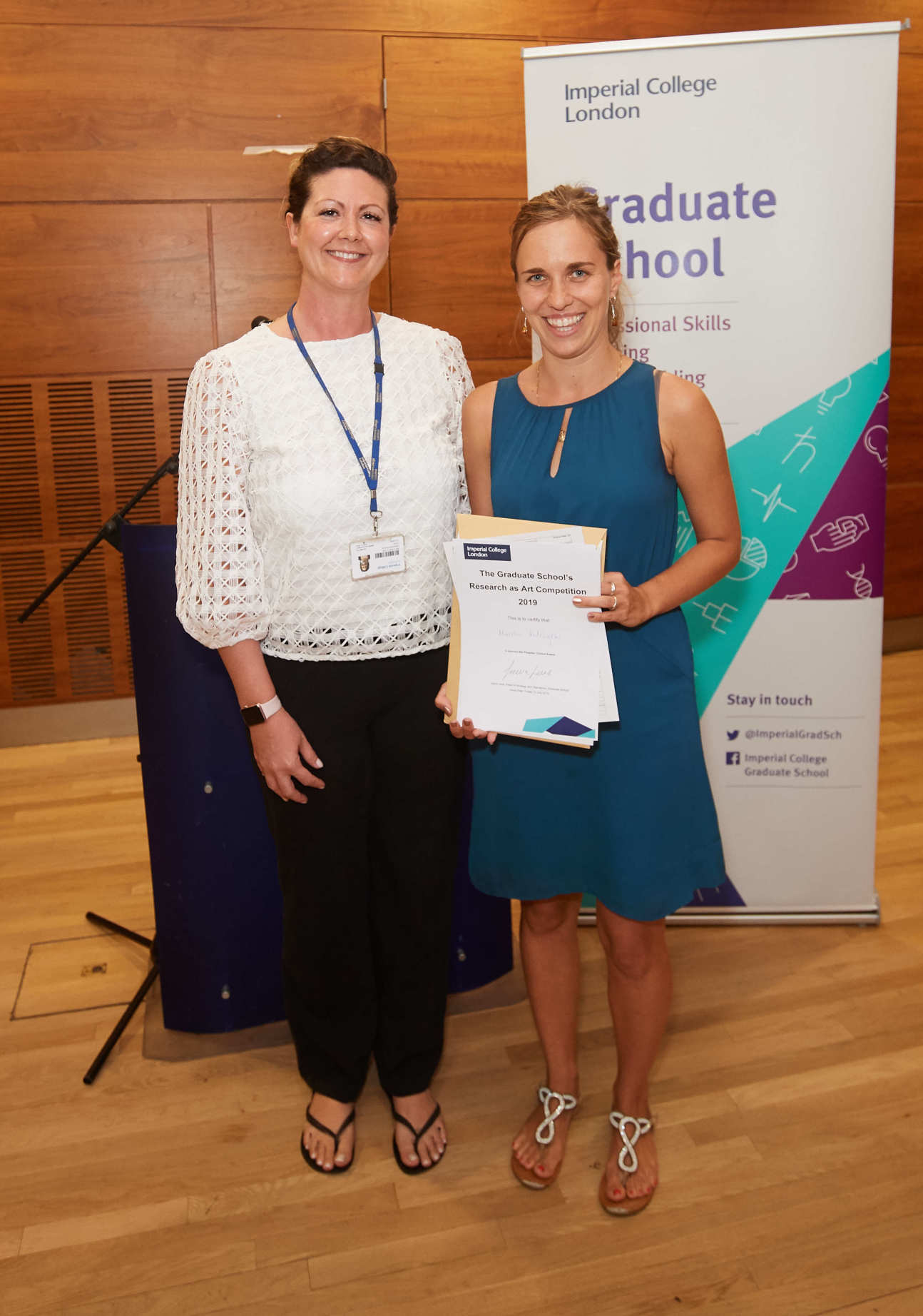 Martha said: “My PhD project focuses on the use of a special fluorescent dye which targets breast cancer, alongside the use of a special camera system to help surgeons see any tumours during surgery.
Martha said: “My PhD project focuses on the use of a special fluorescent dye which targets breast cancer, alongside the use of a special camera system to help surgeons see any tumours during surgery.
"Our fluorescent dye allows surgeons to see a real-time visual of the tumour - which glows - so the surgeon can cut out the tumour until no glow is left behind.” Martha hopes that this technology will prevent women living with breast cancer from needing a second operation."
Martha added: “I feel honoured to have won first prize. I really enjoyed the opportunity to explain my research in a way that is easily understood and accessible. The PhD Summer Showcase is a good chance to explore some of the different ways of explaining our complex projects, and to receive feedback from others too.”
Talent in abundance
Mindy Lee, Head of Art in the Education Office and chief judge of the Research as Art competition, said: "Translating research into art is an exciting joint venture between the Graduate School and the Blyth Centre, and the competition provides a platform for our PhD students to visually showcase their research.
“It also offers them a great creative opportunity to share any personal insights and passion for their PhDs. I feel very privileged to have mentored and judged the PhD Student Showcase this year – our students have an abundance of creative talent, and I was extremely impressed with their posters and artworks.”
Poster competition: Switching it up
“Improving our science communication will help us in our communication to colleagues at conferences or for writing job and grant applications." Richard Daws Research Postgraduate
Richard Daws, Research Postgraduate in the Department of Medicine, was awarded first prize in the poster competition. His research aims to understand how the healthy brain is able to switch its attention from one task to another.
“Every moment of our lives, our brain is shifting its attention from one thing to another,” says Richard. “For example, if you are focused on a simple task such as making a cup of tea but are interrupted by the doorbell, you can pause, go to the door and then seamlessly shift back to making your tea – almost as if nothing happened.
"But for patients with neuropsychiatric complaints such as dementia, autism spectrum disorder or anxiety, being interrupted in this way can be really problematic and this leads to significant difficulties in navigating daily life.”
Richard’s poster showed how the brain ‘reconfigures’ its activities during this attentional switching. “Cognitive neuroscience research is often highly abstract and so it can be challenging to communicate this to a general audience,” he explains.
“When I delivered my two-minute elevator pitch, I tried to use everyday examples of how we use our brains to navigate our lives, and to clearly explain why this research will become the foundation to larger clinical aims. I focussed on two or three scientific claims and spoke in a slow, calm and conversational manner.”
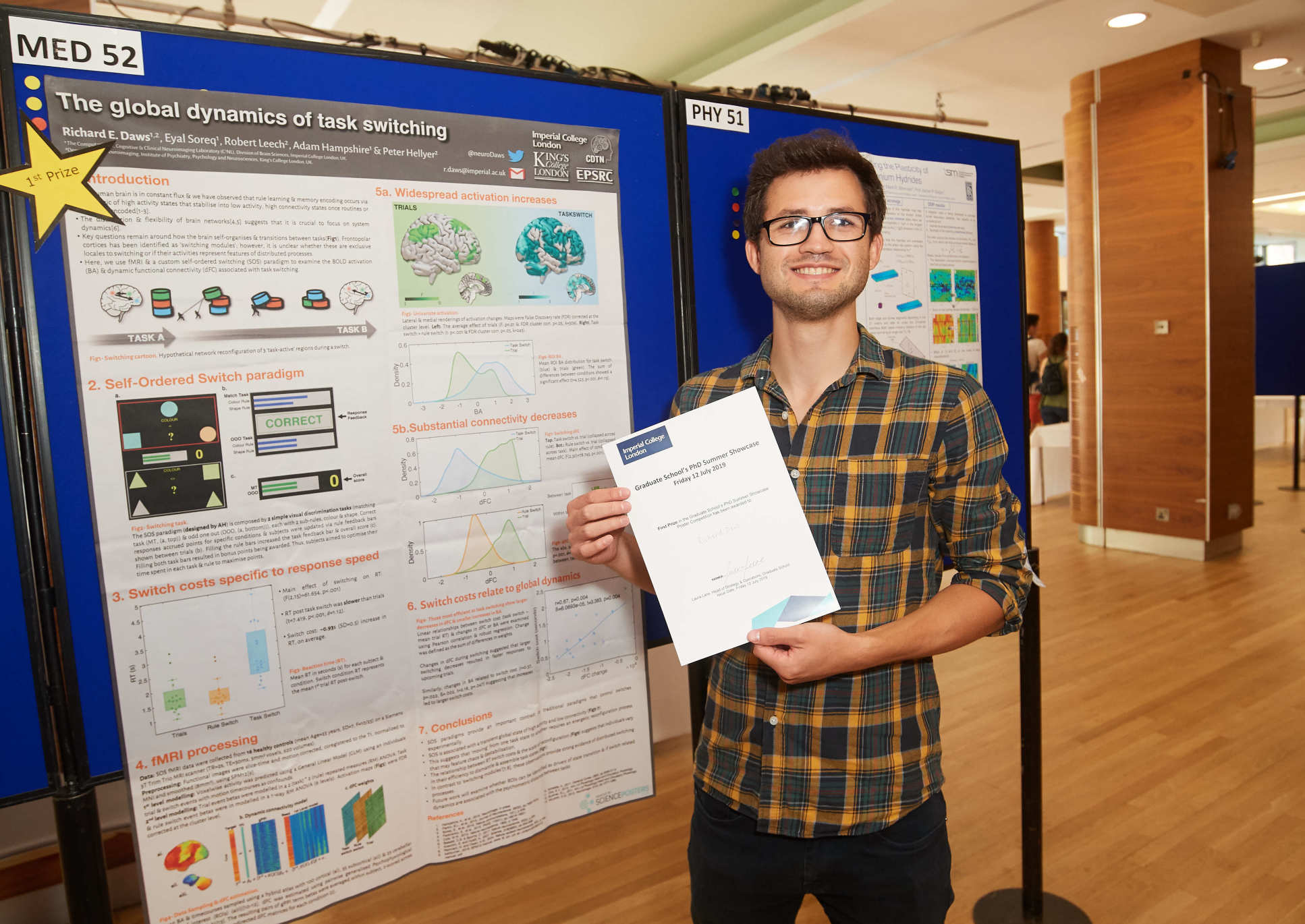
Improving science communication
Reflecting on the PhD summer showcase, Richard says that events like the poster competition are critical. “They are an excellent supplement to the conventional scientific training of a PhD. Improving our science communication will help us in our communication to colleagues at conferences or for writing job and grant applications. More importantly, it will allow us to disseminate our research to the general public.”
Article text (excluding photos or graphics) © Imperial College London.
Photos and graphics subject to third party copyright used with permission or © Imperial College London.
Reporter
Martha Salhotra
Communications Division
